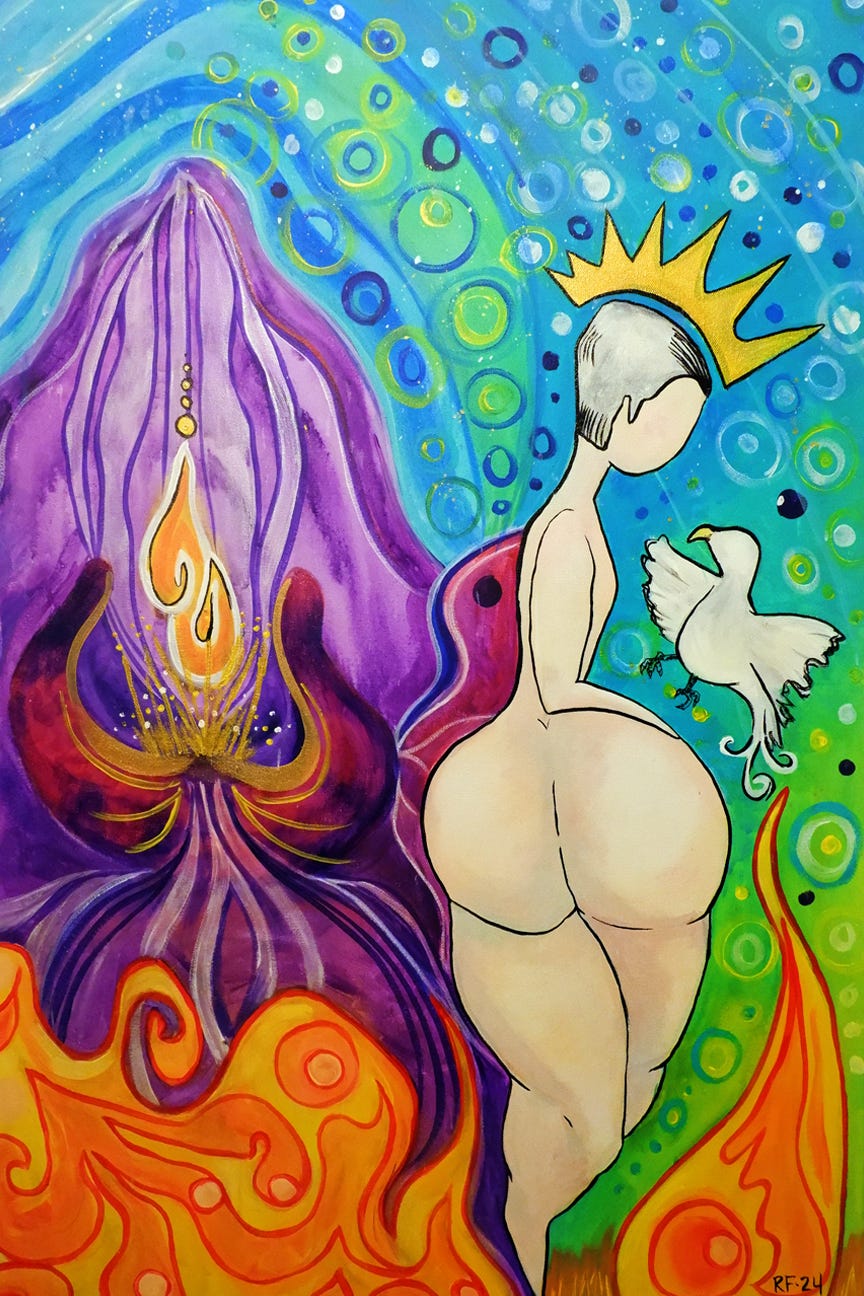Queen Wanda
this is an unedited version of a story that will be featured in the gallery book for my project Wypominky Kobiety.
The story of Princess Wanda has a few variations. These are folk stories after all, but I can assure you, even if things didn’t happen exactly as I am retelling them, all of these things really did happen.
Wanda was the daughter of King Krakus, the founder of Kraków. Krakus was a mighty hero. A benevolent leader and devoted father. He was adored by his people who were called Vistulans, after the river that owed past their castle. Krakus was named after either the oak tree (the krak) or carried his name from a pre-slavic word, krakula, which meant something like a judge’s staff. Wanda was much like her father- wise, generous, be- loved by her people and very, very brave. She had two older brothers who are worth mentioning because they must have been an influence on her, although she is the only sibling who survived to inherit the kingdom.
She was known for her judicial prudence and her passion for her nation. Known both for her kindness, but also her ferocity as a warrior, often leading her army from the front lines. It seems that Wanda was very regular, for a woman, in her duality. It is unclear how old Wanda was when she inherited the land of the Vistulans, but it seems she was not older than marrying age. A young queen will always face challenges and Wanda’s most famous challenge came from Germany, shortly after her father was taken away by birds.
Some Teutons thought it might be a good time to invade and take
the majestic castle, its river and all its people. Their prince sent word that Kraków was under ransom- either Wanda would marry him and turn over her lands as dowry or he would invade and take it anyway. Not one to shrink from a fight, Wanda rode out to battle at the front of her army, ready for confrontation. When they met on the eld of battle, the Teuton was so stunned by either her beauty or her sheer audacity that he either turned back under white flags or he killed himself on the spot. Either way the kingdom was saved. The people began calling the river the Vandalus and them- selves Vandals after their heroine. Wanda served her people for many years. She never married.
Her symbols are the white eagle and the purple orchid. She is buried outside Kraków at a place called Kopeic Wandy (the Wanda mound.) Although she followed the old ways, her people are now mostly Christian. They celebrate her life each year at Pentecost when they light bon res in her honour. And that is the story of Poland’s warrior queen, the virgin mother of the Vandal people, whose bravery kept us safe.




